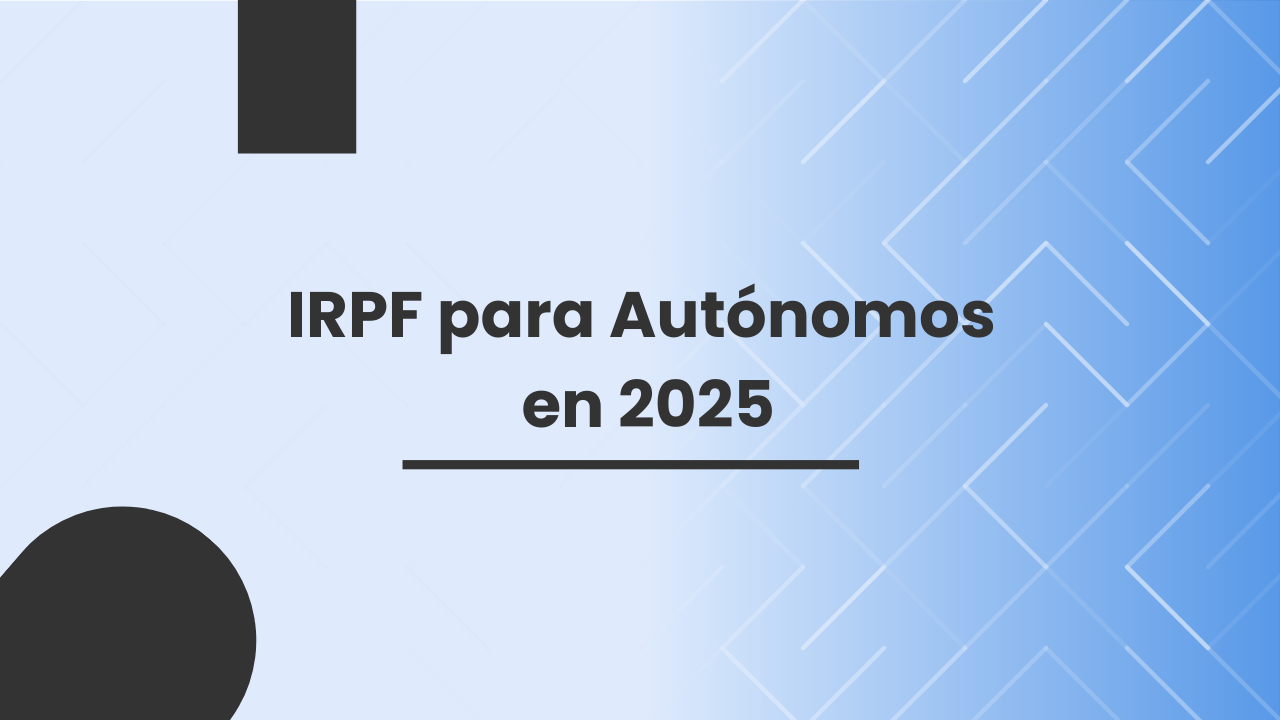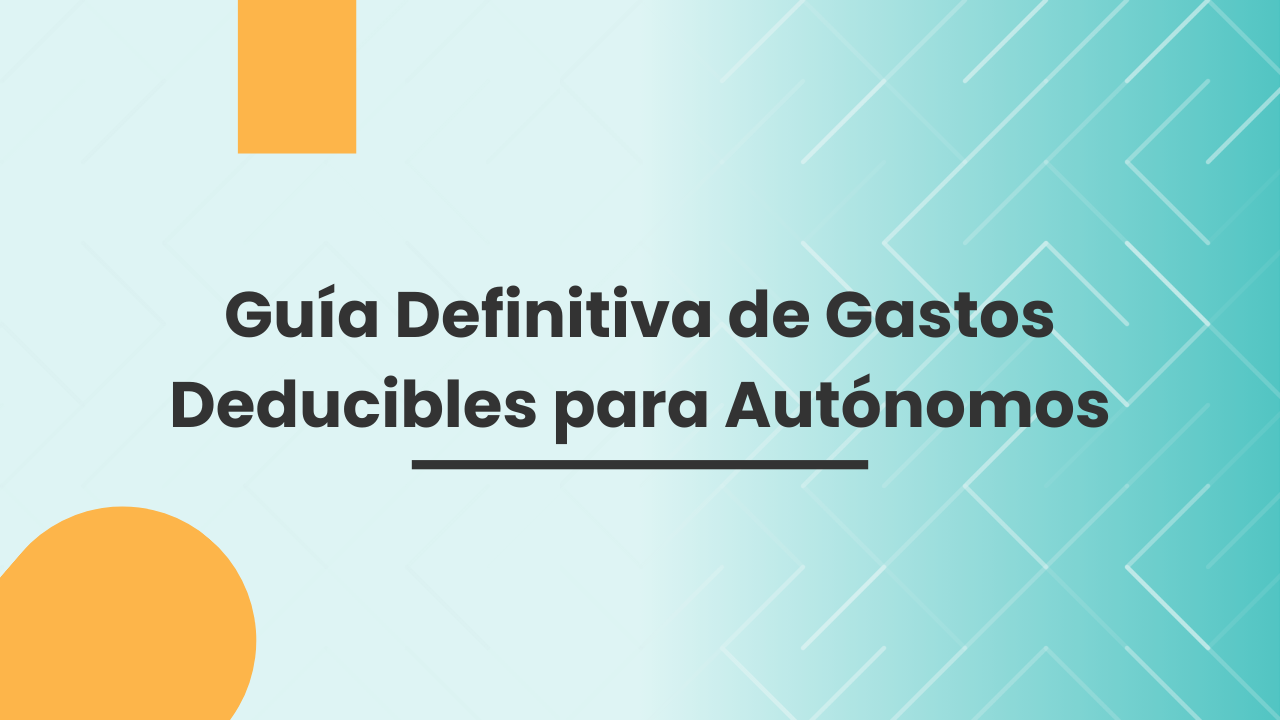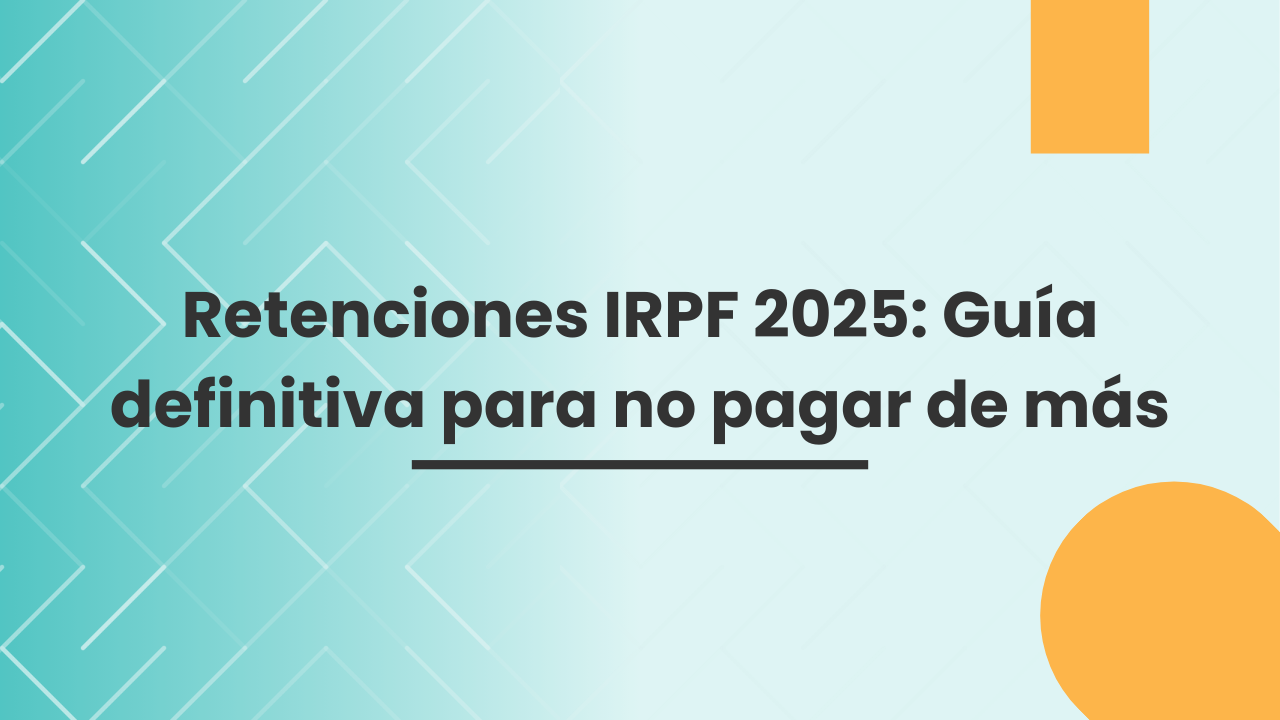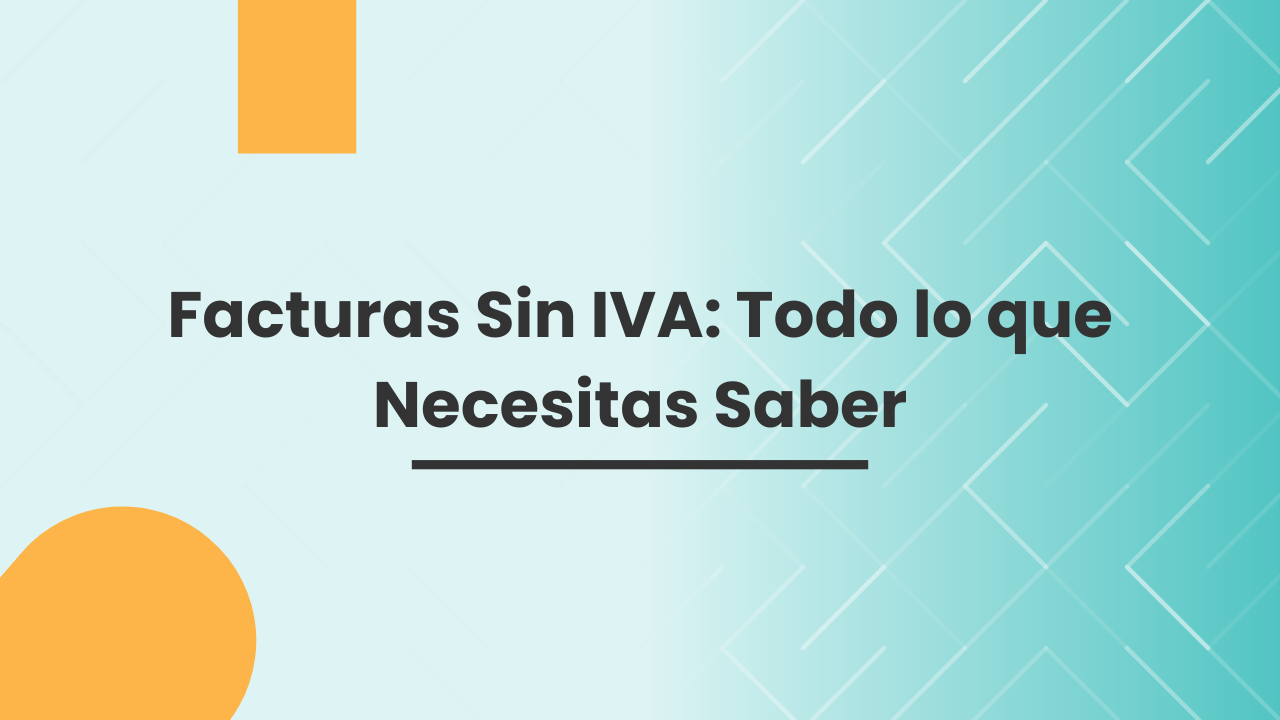Personal Income Tax for Self-Employed Workers in 2025

Content:
If you're self-employed in Spain, you know that navigating the tax labyrinth can be one of the biggest challenges of your professional activity. Tax pressure, constant regulatory updates, and the complexity of deductions mean many independent professionals end up paying more taxes than necessary. The result? Thousands of euros that could end up in your pocket end up in the Treasury's coffers due to lack of knowledge.
In this updated guide for 2025, we'll take an in-depth look at how Personal Income Tax (IRPF) affects your self-employment activity, what expenses you can legally deduct, and how to optimize your taxation while scrupulously complying with current regulations.
What Taxes Does a Self-Employed Person in Spain Have to Pay?
Self-employed workers in Spain are primarily subject to two major taxes, the application of which depends primarily on the activity they carry out:
Personal Income Tax (IRPF) : Mandatory for all self-employed workers, regardless of their activity.
Value Added Tax (VAT) : Its application will depend on whether the activity carried out is subject to or exempt from VAT according to current regulations.
Correctly specifying your activity in your tax return (form 036) is crucial to determining your specific tax obligations.
Personal Income Tax for the Self-Employed: Withholdings and Income from Economic Activities
When you are self-employed, the income you earn must be declared on your personal income tax return as "income from economic activities." According to Articles 27.1 and 27.2 of the Personal Income Tax Law (Law 35/2006), for it to be considered as such, two fundamental requirements must be met:
Existence of an autonomous organization of means of production or human resources
Purpose of intervening in the production or distribution of goods or services
Difference between Business and Professional Activities
It is crucial to distinguish between:
Professional activities : Included in Sections Two (general professions) and Three (artistic or sports professionals) of the Tax Rates. Examples: architects, doctors, lawyers, notaries.
Business activities : Included in the First Section of the Tariffs. Examples: manufacturing, construction, commerce, hospitality, transportation, telecommunications.
This distinction has important implications for aspects such as applicable withholdings or accounting obligations.
Methods for Determining Net Yield
There are three main methods for determining the net return on your business:
1. Direct Normal Estimation
It is mandatory when:
The net turnover for the previous year exceeded 600,000 euros.
The simplified modality has been abandoned.
2. Simplified Direct Estimation
Most common method among self-employed workers, applicable when:
Performance is not determined by the objective estimation method.
The turnover for the previous year does not exceed 600,000 euros.
No activity is in normal mode.
3. Objective Estimation (Modules)
Applicable when:
The activity is among those listed in the current Order of the Ministry of Finance.
The total income does not exceed the established limits (€250,000 for all activities, or €125,000 for transactions with invoices to business owners).
The purchase volume does not exceed 250,000 euros per year (VAT excluded).
Personal Income Tax Withholdings for Self-Employed Workers
Self-employed professionals are subject to withholdings when they invoice companies or other professionals:
- General rate : 15%
- Reduced rate : 7% (applicable during the tax period of commencement of activity and the following two, provided that no professional activity has been carried out in the previous year)
To benefit from the reduced rate, you must expressly notify the payer, who must retain the signed notification.
New : Starting in 2024, professionals who received at least 70% of their income with withholding tax in the previous year are exempt from filing quarterly installment payments (Form 130).
Deductible and Non-deductible Expenses: The Key to Optimizing Your Taxes
For an expense to be tax deductible it must meet three essential requirements:
- Be linked to economic activity (principle of correlation with income).
- It must be duly justified by an invoice that meets the regulatory requirements.
- Be registered in the mandatory accounting or registration books.
Most Relevant Deductible Expenses for Self-Employed Workers
1. Operating Consumption
Purchases of goods necessary for the exercise of the activity (stocks, merchandise, etc.).
2. Salaries, Wages and Social Security
- Salaries paid to employees
- Self-employed contributions of the holder
- Company contributions to employees
3. Leases
Rental of premises or spaces where the activity takes place.
4. Repairs and Maintenance
Maintenance costs of elements related to the activity.
5. Independent Professional Services
Invoices from notaries, lawyers, advisors, etc., directly related to the activity.
6. Supplies
Expenses for electricity, water, telephone, internet, etc., of the affected properties.
7. Tax Deductible Taxes
IAE, IBI of the premises, garbage tax and other taxes linked to the activity.
8. Financial Expenses
Interest on loans, leasing or renting on affected items.
9. Amortizations
Depreciation of capital goods according to official tables.
10. Living Expenses
The self-employed person's living expenses are deductible under the following conditions:
- They must be produced in catering and hospitality establishments
- They must be paid by electronic means of payment
- With the limits established for workers' allowances (in national territory, €26.67 per day if there is no overnight stay; €53.34 if there is an overnight stay)
11. Expenses for Supplies of the Habitual Residence
If you work from home, you can deduct utilities (water, electricity, gas, telephone, internet) at the rate resulting from applying 30% to the proportion of square meters used for the activity, unless you can prove a higher percentage.
Special Cases and Non-Deductible Expenses
Vehicles
Vehicle-related expenses (purchase, repair, fuel, insurance) are only deductible if proven to be exclusively used for business purposes. They are not deductible if the vehicle is also used for private purposes, even occasionally.
Other Non-Deductible Expenses
- Late payment interest on inspection reports.
- Interest on loans to pay tax debts.
- Clothing expenses, even if used for professional activities.
- Interest on credit for the purchase of used vehicles for personal needs.
Accounting and Registry Obligations
Obligations vary depending on the tax regime and the type of activity:
Commercial Entrepreneurs in Normal Direct Estimation
- Accounting adjusted to the Commercial Code and General Accounting Plan
Non-Commercial Entrepreneurs and All in Simplified Direct Estimate
Sales and income record book
Purchase and expense logbook
Investment asset record book
Direct Estimation Professionals (Both Modalities)
Income record book
Expense record book
Investment asset record book
- Record book of provisions of funds and supplies
All self-employed individuals must keep records of invoices issued and received, numbered by date and grouped by quarter.
Conclusion: Tax Planning as a Business Strategy
Proper tax planning not only allows you to meet your tax obligations, but can also result in significant savings at the end of the year. It's essential to know all the deductible expenses applicable to your business and keep adequate records of them.
The difference between a self-employed person who takes advantage of all legal deductions and one who doesn't can translate into thousands of euros annually. Therefore, we recommend that you periodically review your tax situation, ideally with professional advice, to optimize your taxation within the legal framework.
If you have questions or want to make sure you're taking advantage of all your tax options, contact our self-employed tax specialists. At InnoTaxes, we can help you pay just the right amount. Contact us.
Last updated: May 2025 (This article may be updated in the future.)


